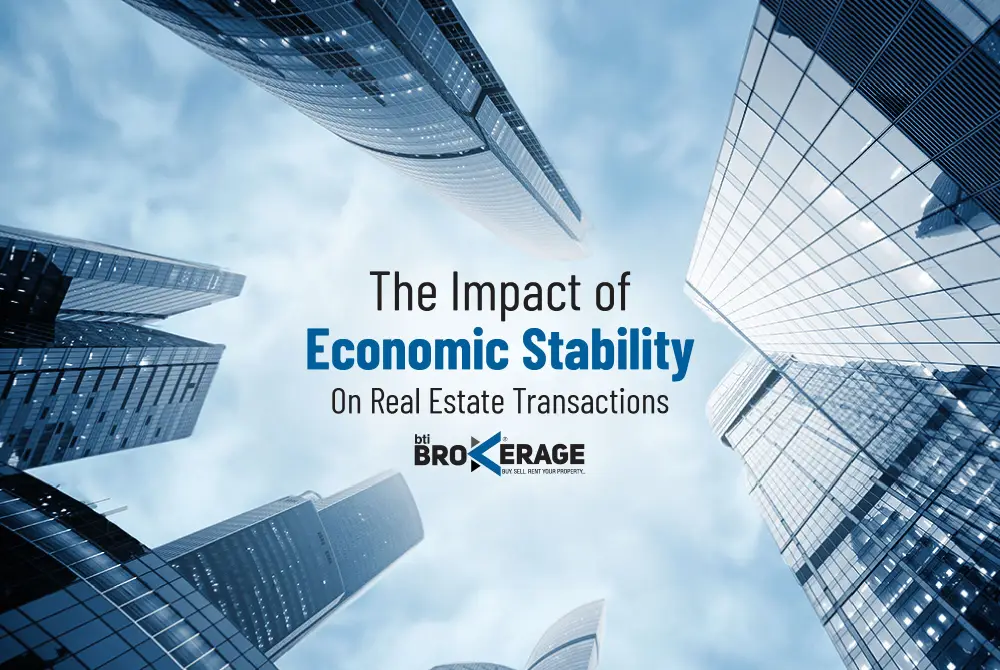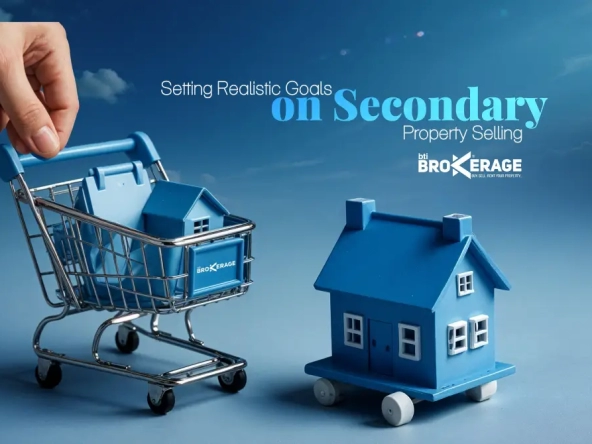The real estate market is one of the most sensitive sectors when it comes to economic stability. It reflects the broader economic health of a country and reacts swiftly to any shifts in economic indicators such as interest rates, inflation, employment rates, and consumer confidence.
Economic stability plays a pivotal role in shaping the behavior of buyers, sellers, and investors in the real estate industry. In this blog, we’ll explore how economic stability impacts real estate transactions and the different ways in which the market reacts to both stability and instability.
1. Consumer Confidence and Buying Power
Economic stability fosters consumer confidence. When the economy is stable, people feel more secure in their jobs and will likely engage in long-term financial commitments such as purchasing a home. Low unemployment rates, stable inflation, and steady wage growth create a sense of financial security, empowering potential buyers with the confidence to invest in real estate.
Conversely, during periods of economic instability, consumers tend to be cautious. Rising unemployment rates, fluctuating interest rates, and economic uncertainty may lead to a decline in home purchases. People prefer to hold off on large transactions until they feel more confident in their financial future.
2. Interest Rates and Borrowing Costs
Interest rates, often set by central banks, are closely tied to economic stability. In stable economies, central banks maintain lower interest rates to encourage borrowing and stimulate growth. Low interest rates reduce the cost of borrowing, making mortgages more affordable for buyers and thus driving up demand for real estate.
In times of economic instability, central banks may raise interest rates to curb inflation, making borrowing more expensive. This deters potential buyers from entering the market, leading to a decrease in real estate transactions. Higher interest rates also affect property investors, who rely on loans to finance their ventures, causing a slowdown in investment-driven transactions.
3. Inflation and Property Values
A stable economy typically experiences moderate inflation, which is beneficial for the real estate market. Gradual inflation leads to a steady increase in property values, which is attractive to both homeowners and investors. As property values rise over time, real estate becomes a reliable investment, promoting more transactions in the market.
However, during periods of economic instability, inflation can spiral out of control, causing sharp increases in the cost of living. When inflation is high, consumer purchasing power declines, reducing the ability to afford homes.
This results in a slowdown in real estate transactions. In severe cases of hyperinflation, property values may become volatile, further discouraging potential buyers and investors from entering the market.
4. Employment and Household Income
Employment rates and household income are key drivers of real estate transactions. A stable economy with low unemployment and rising wages leads to increased household income, allowing people to save for down payments and afford higher monthly mortgage payments. This promotes a vibrant real estate market with strong demand for both residential and commercial properties.
In contrast, an unstable economy with high unemployment and stagnant wages can have a chilling effect on real estate transactions. People facing job insecurity are less likely to take on significant financial commitments, leading to a drop in home sales. This decline in demand can also lead to falling property prices, further discouraging both buyers and sellers.
5. Investment and Foreign Capital
In a stable economy, the real estate market often benefits from both domestic and foreign investment. Investors view real estate as a safe and lucrative asset class in times of economic stability. Foreign investors, in particular, are attracted to markets with stable economies, as they offer predictable returns on investment and less risk.
However, during economic instability, investors tend to shy away from real estate due to the uncertainty and potential for market downturns. Capital flight may occur, with foreign investors pulling out their funds to seek safer assets elsewhere. This leads to reduced demand for properties, especially in luxury and commercial sectors, and a slowdown in transactions.
6. Government Policies and Market Regulation
Economic stability allows governments to implement policies that encourage real estate transactions, such as tax incentives for homebuyers, affordable housing initiatives, and relaxed regulations for property developers. These policies boost the real estate market by making it easier for people to buy and sell homes.
During economic instability, governments may be forced to impose austerity measures or tighten regulations to stabilize the economy. This can lead to higher taxes, stricter lending standards, and reduced government spending on housing initiatives, which can stifle real estate transactions.
Conclusion
Economic stability is crucial for a healthy and thriving real estate market. A stable economy creates favorable conditions for buyers, sellers, and investors, driving up real estate transactions and boosting property values. In contrast, economic instability brings uncertainty and hesitation, leading to a slowdown in market activity. As a result, the real estate market will always be closely tied to the broader economic landscape, reacting to fluctuations in stability in both predictable and unpredictable ways.
By understanding these dynamics, buyers, sellers, and investors can make informed decisions and navigate the real estate market more effectively, regardless of economic conditions.



